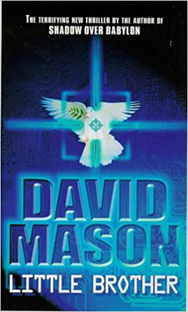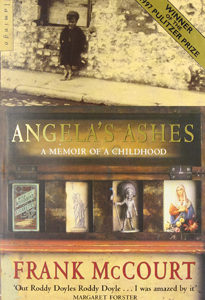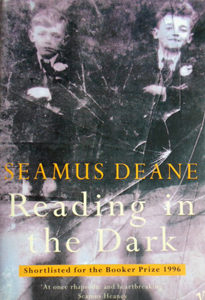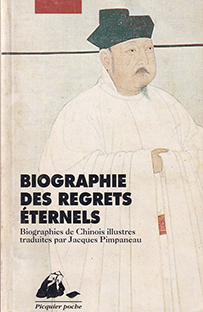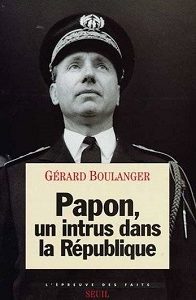- Home
- >
- Langue étrangère
- >
- Little Brother
David Mason
Little Brother
En Anglais – A state-of-the-art computerized killing machine bids to destroy world peace. Ed Howard discovers that he is confronting the world’s most effective mercenary force, the East German Stasi, with the team he led into and out of Iraq, augmented by a female Korean agent.
Vous aimerez aussi
Angela’s ashes, a memoir of a childhood
En Anglais – « When I look back on my childhood I wonder how I managed to survive at all. It was, of course, a miserable childhood: the happy childhood is hardly worth your while. Worse than the ordinary miserable childhood is the miserable Irish childhood, and worse yet is the miserable Irish Catholic childhood. » So begins the Pulitzer Prize winning memoir of Frank McCourt, born in Depression-era Brooklyn to recent Irish immigrants and raised in the slums of Limerick, Ireland. Frank’s mother, Angela, has no money to feed the children since Frank’s father, Malachy, rarely works, and when he does he drinks his wages. Yet Malachy– exasperating, irresponsible and beguiling– does nurture in Frank an appetite for the one thing he can provide: a story. Frank lives for his father’s tales of Cuchulain, who saved Ireland, and of the Angel on the Seventh Step, who brings his mother babies ….
Reading in the Dark
En Anglais – Hugely acclaimed in Great Britain, where it was awarded the Guardian Fiction Prize and short-listed for the Booker, Seamus Deane’s first novel is a mesmerizing story of childhood set against the violence of Northern Ireland in the 1940s and 1950s. The boy narrator grows up haunted by a truth he both wants and does not want to discover. The matter: a deadly betrayal, unspoken and unspeakable, born of political enmity. As the boy listens through the silence that surrounds him, the truth spreads like a stain until it engulfs him and his family. And as he listens, and watches, the world of legend–the stone fort of Grianan, home of the warrior Fianna; the Field of the Disappeared, over which no gulls fly–reveals its transfixing reality. Meanwhile the real world of adulthood unfolds its secrets like a collection of folktales: the dead sister walking again; the lost uncle, Eddie, present on every page; the family house « as cunning and articulate as a labyrinth, closely designed, with someone sobbing at the heart of it. » Seamus Deane has created a luminous tale about how childhood fear turns into fantasy and fantasy turns into fact. Breathtakingly sad but vibrant and unforgettable, Reading in the Dark is one of the finest books about growing up–in Ireland or anywhere–that has ever been written.
Biographie des regrets éternels
Empereurs, courtisanes, assassins, portefaix, jardiniers, amoureuses ou poètes sont les héros de ces vies romancées écrites en Chine depuis les premiers siècles de notre ère.
La biographie y était un genre littéraire qui ne semble pas avoir son équivalent en Europe, à quelques exceptions près comme les Vies des hommes illustres de Plutarque, les Vies imaginaires de Schwob ou les Excentriques anglais de Sitwell.
Au total, vingt-six biographies : vies exemplaires, portraits émouvants ou anecdotes célèbres qui animent pour nous l’histoire de la Chine avec la saveur poétique et le raffinement d’écriture des plus belles Fictions de Borges.
Papon, un intrus dans la République
Maurice Papon, secrétaire général de la préfecture de la Gironde de 1942 à 1944, est le seul haut fonctionnaire de Vichy poursuivi devant une cour d’assise pour crimes contre l’humanité. Dans son ouvrage, Maurice Papon, un technocrate français dans la collaboration, Gérard Boulanger avait décrit le rôle de Papon dans la déportation des familles juives de Bordeaux. Dans Papon, un intrus dans la République, l’auteur raconte la reconversion instantanée d’un homme de Vichy en bras droit du commissaire de la République nommé par de Gaulle, puis son blanchiment. Il révèle comment, grâce à ses réseaux dans l’appareil d’État, à des certificats de complaisance, à des faux administratifs et au soutien gaulliste, par un véritable tour de passe-passe, Maurice Papon est baptisé « résistant ». Papon peut alors poursuivre une belle carrière sous la IVe et Ve République. Préfet de police de Paris pendant la guerre d’Algérie, il finit ministre de Giscard d’Estaing.


